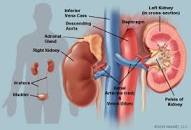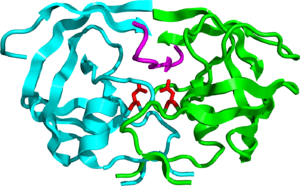
Recently Diagnosed or Relapsed? Stop Looking For a Miracle Cure, and Use Evidence-Based Therapies To Enhance Your Treatment and Prolong Your Remission
Multiple Myeloma an incurable disease, but I have spent the last 25 years in remission using a blend of conventional oncology and evidence-based nutrition, supplementation, and lifestyle therapies from peer-reviewed studies that your oncologist probably hasn't told you about.
Click the orange button to the right to learn more about what you can start doing today.
- You are here:
- Home »
- Blog »
- Multiple Myeloma »
- Treating Both Multiple Myeloma & Kidney Damage
Treating Both Multiple Myeloma & Kidney Damage

Hi David- My husband was diagnosed with multiple myeloma in May of 2019. He had an autologous stem cell transplant at the end of 2019. The ASCT only lasted 5 months. His creatinine is 6 and light chains are over 5,000.
He has been on velcade, darzalex, pomalist, kyprolis, selinexor. With the selinexor his platelets dropped to 20. They stopped the meds and the MM kept rising and it ate up all of his red cells and he needed 2 pints of blood .
Now they are giving him the selinexor again. MM specialist said there is only 2 more drugs left and they will put him on palliative care.
Where else can we go for different treatment? Also we were told he wasn’t eligible for CAR T transplant due to his kidneys. Is there a trial out there that will do CAR T and put you on dialysis! Thank you for your time and information- Kate
Hi Kate,
I am sorry to read of your husband’s MM challenges. It looks as though your husband is struggling with both aggressive MM as well as MM that makes a protein that clogs his kidneys.
If you are working with a MM specialist there may not be much that I can offer. I will say however, that it is my experience that oncologists focus on the MM at the expense of kidney health.
By this I mean that less chemotherapy and more therapies shown to improve kidney health may be a direction to go in. Further, conventional M.D. ’s will not look at, will not consider any therapy that is not approved by the FDA.
According to the study linked below, Velcade has been shown to both kill MM as well as improve kidney health.
Below that article, is a blog post that I wrote about non-toxic therapies that integrate or synergize with proteasome inhibitors. Velcade (bortezomib), is a PI.
Below that blog post, is a post that I wrote documenting a non-toxic therapy called curcumin that has been shown to improved kidney health.
My point is to consider Velcade, only enough to manage your husband’s MM, and support both the Velcade and kidney health with non-conventional therapy- both curcumin as well as omega-3 fatty acids, etc.
Your doctors will not like the idea of any therapy that is non-conventional aka not FDA approved.
I mention it only because it appears that you are running out of options.
Let me know if you have any questions.
Hang in there,
David Emerson
- MM Survivor
- MM Cancer Coach
- Director PeopleBeatingCancer
Recommended Reading:
- Chemo-Induced Heart Failure-Cardiac Rehabilitation- Omega-3 fatty acids
- Curcumin, Doxorubicin Combo in Relapsed/Refractory Multiple Myeloma
- Cancer Coaching Testimonials- PeopleBeatingCancer
Rapid improvement in renal function in patients with multiple myeloma and renal failure treated with bortezomib
“Studies have also shown that bortezomib is also effective in patients with MM who present with renal failure. We report here six cases of renal failure secondary to MM treated with bortezomib. All patients had poor performance status of 3-4 on ECOG scale. Five out of six patients showed satisfactory anti-myeloma response to bortezomib. Reversal of renal failure was observed in all six patients. Adverse effects to bortezomib were mild and manageable. Reversal of renal failure persisted despite incomplete response to MM in two cases, and progression of disease in one patient. It appears that bortezomib may have an effect on the kidneys in reversal of renal failure, other than its anti-myeloma effect. In conclusion, bortezomib appears to be an effective treatment for patients with advanced MM and renal failure irrespective of performance status and age…”
Multiple Myeloma Chemotherapy- Proteasome Inhibitors
““More importantly, a low concentration of RSV was synergistic with a low dose of the proteasome inhibitor carfilzomib (CFZ) to induce apoptosis in myeloma cells…
While the solution, in my experience anyway, is evidence-based, it is not FDA approved. In other words, the studies linked below explain that
- curcumin
- omega-3 fatty acids
- resveratrol
- thymoquinone (black seed oil) and
- honokiol
all integrate with and enhance conventional MM protease inhibitors Bortezomib and Carfilzomib, but they are not FDA approved. This is why “non-conventional therapies” are called “non-conventional.” Because conventional oncology doesn’t study them and the FDA won’t approve them…”
Multiple Myeloma Therapy- Curcumin for Both Symptoms, Side Effects
“Preventive Effect of Curcumin Against Chemotherapy-Induced Side-Effects.
“However, chemotherapy only has a limited success with severe side effects, especially causing damage to normal tissues such as bone marrow, gastrointestine, heart, liver, renal, neuron, and auditory tissues, etc. The side-effects limit clinical outcome of chemotherapy and lower patients’ quality of life, and even make many patients discontinue the chemotherapy. Thus, there is a need to explore effective adjuvant strategies to prevent and reduce the chemotherapy-induced side effects…
In the present article, we review the preventive effect of curcumin against:
- chemotherapy-induced myelosuppression,
- gastrointestinal toxicity,
- cardiotoxicity,
- hepatotoxicity,
- nephrotoxicity,
- neurotoxicity,
- ototoxicity, and
- genotoxicity,
and discuss its action mechanisms…”
Curcumin induces cell death of the main molecular myeloma subtypes, particularly the poor prognosis subgroups
“The present study demonstrated that curcumin was able to induce cell death of HMCLs belonging to the main MM subtypes. Taking into account myeloma molecular heterogeneity, we found that most sensitive HMCLs were spread out over the t(14;16) and t(4;14) subgroups…
All these findings might support clinical trials including curcumin in association with standard therapy, as chemoresistance remains a major challenge in myeloma treatment…”
Curcumin and Chronic Kidney Disease (CKD): Major Mode of Action Through Stimulating Endogenous Intestinal Alkaline Phosphatase
“Chronic kidney disease (CKD), an inflammatory disease, can lead to end stage renal disease resulting in dialysis and transplant. Furthermore, it is frequently associated with other inflammatory disease such as diabetes and cardiovascular disorders…”
Effects of a Curcumin-Based Supplementation in Asymptomatic Subjects With Low Bone Density: A Preliminary 24-week Supplement Study
“Osteopenia is a chronic bone condition characterized by decreased calcification, density, or bone mass that, if untreated, can lead to osteoporosis and bone fractures…In this study, we evaluated the efficacy, in term of changes in bone density, and safety of an oral formulation based on turmeric phytosome (Meriva®), in subjects suffering from low bone density…
Results: The bone density of the heel measured by the Sahara densitometer remarkably improved in the Meriva®-supplemented group, with a significant decrease of ultrasounds transmission values at week 12 (-18.4%) and at week 24 (-21.0%), compared with baseline values… Last, no safety and tolerability issues were reported during the observational period.
Conclusions: This preliminary study suggests that a curcumin-based supplementation in combination with an appropriate lifestyle could be beneficial in the prevention and management of osteopenia…”
The Protective Role of Curcumin in Cardiovascular Diseases
In this review, we focused mainly on the effects of curcumin on the cardiovascular system. The antioxidant effects of curcumin have been shown to attenuate adriamycin-induced cardiotoxicity and may prevent diabetic cardiovascular complications.
The anti-thrombotic, anti-proliferative, and anti-inflammatory effects of curcumin and the effect of curcumin in decreasing the serum cholesterol level may protect against the pathological changes occurring with atherosclerosis…”


